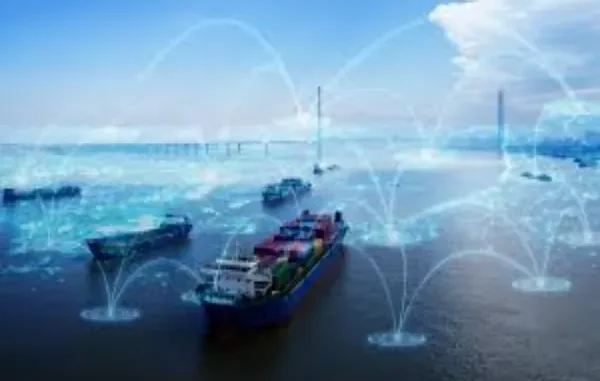
Technology has changed industries worldwide, and shipping is no exception. Beyond the well-known advancements in automation, artificial intelligence, and GPS, technology has transformed shipping in ways that may surprise many. These unexpected innovations are shaping the future of global logistics, improving efficiency, reducing costs, and enhancing environmental sustainability.
Blockchain for Enhanced Transparency and Security
Blockchain, most commonly associated with cryptocurrencies, is making waves in the shipping industry by enhancing transparency and security. Shipping involves multiple parties—suppliers, carriers, ports, and regulators—all needing to exchange critical data. Traditionally, this process has been prone to errors, delays, and even fraud. Blockchain technology allows for the creation of tamper-proof digital ledgers that track every stage of a shipment’s journey. This ensures that data is not only accurate but also shared in real time across the entire supply chain.
For instance, the shipping giant Maersk has partnered with IBM to create TradeLens, a blockchain-based platform designed to streamline global trade. With the system, shippers can trace the origin, status, and conditions of goods as they move through the supply chain, making shipping more transparent and secure than ever before.
Drones and Autonomous Delivery Vehicles
One of the most futuristic applications of technology in shipping is the growing use of drones and autonomous vehicles for deliveries. While many think of drones in terms of small package deliveries from companies like Amazon, the shipping industry is increasingly experimenting with larger drones for long-distance cargo transport. In remote or hard-to-reach areas, drones can deliver goods faster and more efficiently than traditional vehicles.
In addition, autonomous delivery vehicles—whether they be trucks or ships—are becoming more prevalent. Companies such as Tesla are working on self-driving trucks that can transport goods across highways without the need for a human driver, reducing labor costs and minimizing accidents caused by human error. Autonomous ships, such as those being developed by Rolls-Royce, could transform maritime shipping by operating without a crew, reducing operational costs and lowering fuel consumption.
Ease of Getting Shipping Quotes Online
The shipping process has traditionally been complex, with multiple steps and parties involved in arranging freight services. Technology has simplified this process, making it easier to get quotes for shipping services online. Digital platforms now allow businesses and individuals to compare shipping quotes from various carriers quickly and easily. This means that shippers can instantly see the best pricing, available services, and shipping times, allowing them to make informed decisions without the need to engage in lengthy back-and-forth negotiations.
Marketplaces like Shiply USA allow users to input details about their shipments and receive competitive quotes from multiple shipping companies in minutes. This level of accessibility reduces time spent on administrative tasks, enables better cost management, and enhances the overall customer experience.
Smart Ports and AI-Driven Optimization
Finally, artificial intelligence (AI) is transforming the way ports operate. Ports are the heart of global shipping, but they can also be bottlenecks. AI-driven systems are helping to optimize port operations by managing cargo flow, predicting peak traffic times, and even directing autonomous cranes and vehicles for faster loading and unloading of ships.
Smart ports, such as the Port of Rotterdam, have embraced AI, big data, and IoT (Internet of Things) to streamline operations. This reduces wait times, improves shipping schedules, and increases overall efficiency.
These advancements are not only improving efficiency and security but also driving sustainability, making the shipping industry more agile and responsive to global demands.
Leave a Reply